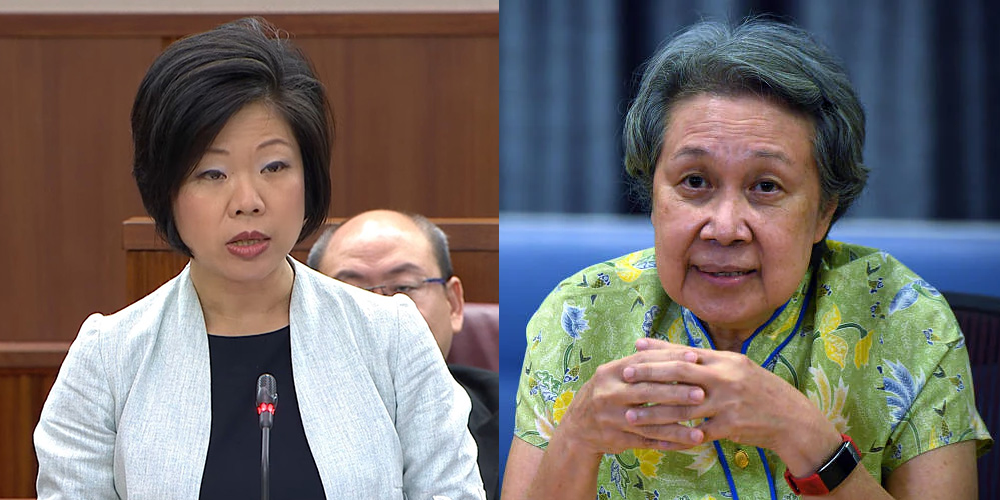by K Lao

It is not something that we should be bragging about – having worse income inequality than almost all OECD countries, other than the US and Mexico.
In the first place, the table on the left on income inequality before taxes and transfers is irrelevant. (They might as well put a ranking of UFO sightings by country instead). Intuitively, when we talk about income inequality, we are concerned with the inequality in the standards of living – which depends more on income that can you can actually buy stuff with, and not income “before taxes and transfers”.
There is no point in patting ourselves on the back for a good before-tax Gini coefficient, when it is the end product that matters. Inequality is defined by the after-tax Gini coefficient. Bringing in an irrelevant factor like before-tax Gini only skews the discussion.
And it is not the first time that the government has tried to explain away the problem. In March 2018, the Straits Times published the chart below on the Singapore’s Gini coefficient and how Singapore fared relative to other countries – but before taxes and transfers. Look at how wonderfully we rank below (while excluding Switzerland from the chart entirely for some reason).

The Ministry of Finance argued that the before-tax Gini coefficient is a more valid measure of inequality because the after-tax calculations “do not reflect the full range of government policy interventions that are unique to the Singapore context”.
The article mentioned in a one-liner that after-tax Gini does not take into account subsidies for HDB flats. That was a feeble response from the Ministry of Finance back then. Parliamentary questions deserve better.
Income inequality is not solely about the quality or cost of housing – and while Singapore has made efforts in other spheres such as healthcare and education, one would expect that the Ministry of Finance at least makes the effort to flag out what these other “non-transfer” efforts are when replying to a parliamentary question. To the Ministry of Social and Family Development’s credit, their recent paper does a far better job in highlighting these policy interventions.
Are we even comparing the same things?
Transfers generally include rebates as well as subsidies for education, health, reemployment. Some schemes are targeted at the elderly and those in need of long term care. But it seems like the glossary of transfers by Singstat includes a lot of things which do not actually target the poor. Here are a few large-scale items which many Singaporeans have heard about that fall within the definition of a transfer:
- NS50 vouchers: Given to everyone who served National Service regardless of income or wealth
- Pioneer Generation Package: Given to everyone who is born before 1950, regardless of income or wealth
- Skillsfuture credit: Given to everyone above the age of 25 to use on skills upgrading, regardless of income or wealth
- Baby bonus: Cash gift to encourage people to have up to four children, regardless of income or wealth
These would not fall within the definition of transfers as per the OECD’s terms of reference, which is solely for transfers for social security, social assistance, and employment-related social insurance – yet we included things like Baby Bonus anyway. Giving everyone in a certain non-needs based category (e.g. students, former NSmen, parents) a red packet of cash cannot count as a transfer in the context of inequality. Once you exclude these elements, the amount that we actually transfer to the needy might be even lower.
On the other end of the spectrum, the level of income among high earners is likely under-reported. If you refer to footnote 2 on MOF’s page or the footnote of the MSF table above, you will realise that Singapore’s Gini coefficient is only based on household income from work, whereas data on OECD economies includes income from investments and property. The amount that the rich can derive from investments and property can be quite sizeable. And this is an avenue of income that the poor would have far less of – having less investments and no property to rent out or sell for a profit. If we were to include these additional sources of income, the income gap in Singapore would widen even further.
In short, our definition of transfers as well as our calculation of income (by excluding investments and property) are different from the OECD’s. And the gap would likely look even worse if we went strictly by the OECD’s definition.
Why do these numbers matter?
At the end of the day, a high Gini coefficient is not a bad thing in and of itself. It is but a mere numerical score. What matters is the underlying situation that the number represents. Attempting to explain away a bad score might be comforting, but it does not change the reality on the ground. The public needs to be aware – and more importantly, policymakers themselves need to have a more accurate picture of how bad things are.
With General Elections round the corner, it makes sense that the government is scrambling to make an effort to address pressing problems. But there may be better ways to address such problems than to explain them away. It is bad enough that our policymakers are increasingly from the same strata of upper-middle class Singaporeans who went to the same elite schools and hold the same pre-conceived notions. Such rosy statistics make them even more prone to believing their own propaganda, and assuming there is no problem when there is in fact one lurking right under the carpet. Denialism only makes it harder for policymakers to actually tackle the problem.






